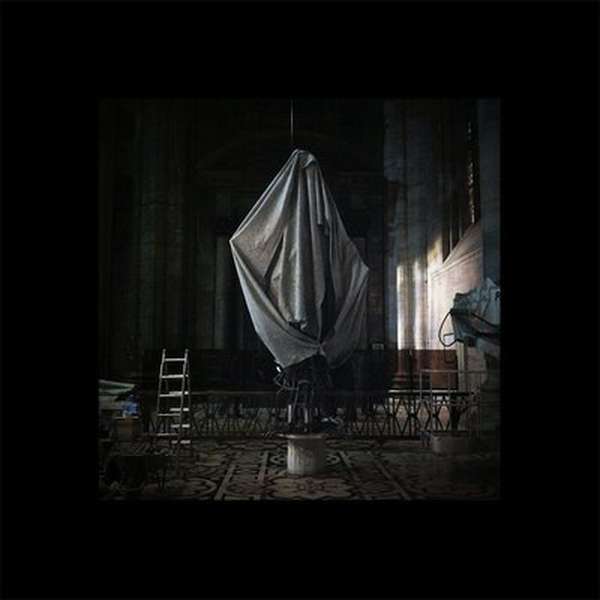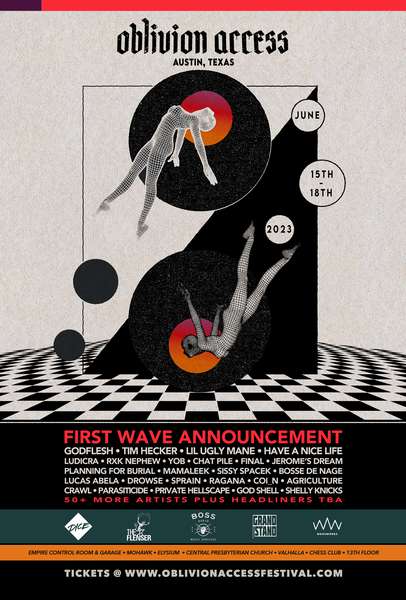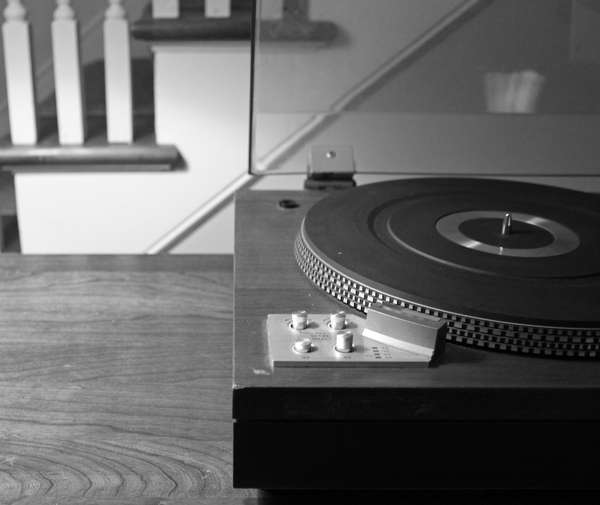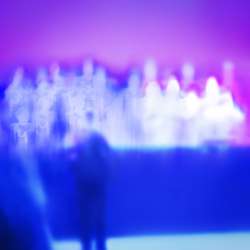Canadian sound artist Tim Hecker is no stranger to the more esoteric side of electronic composition. Continued experimentation with increasingly nuanced ambient soundscapes under said moniker for six full-length releases, as well as countless side appearances, has inevitably led to the creation of something undeniably unique. With the release of Virgins- now Hecker's seventh effort - the bohemian Montreal resident has finally moved beyond the captivating and at times confronting sound experiments that preceded it. Not only does this new endeavour surpass anything previously recorded by Hecker, it represents a monumental, challenging landmark of what can be achieved within the genre as a whole.
From the syncopated, interstitially formatted piano tapestries of "Virginal I", to the almost Sunn O)))-style intensity of "Live Room", Virgins never fails to deliver both Hecker’s rich signatory detail and challenging compositional abstruseness. Though it is not without any small degree of gradation that these twelve arrangements distinguish themselves from any previous works. Amongst the meticulous layering, production and orchestration of each track, what stands out the most in the case of this record is the sheer musical consummation that ties together what should rightfully be wholly disparate elements.
"Prism" for example opens with particularly cinematic panache: great stabs of electric reverse fade gearing into life, much akin to the subject of the accompanying cover visuals; the sounds of some great old unearthed and ignited machine, or the remnants and noises of some other forgotten man made space or object – and it absorbs the listener into this world immediately. Because of this, the album provides not only an exacting listening experience, but also an enjoyable excursion through a series of diverse yet equally interesting compositions. Intriguing they remain however, in the way that they propose not only a highly dissectible level of detail and nuance, but also no lack of lush and masterfully realised musical assertion in the landscape that they paint. "Stab Variation" goes on to close the record in a similar fashion to this, with comparable fervour to the preceding "Live Room" - dramatic and enigmatic punches stabbing intermittently amidst an ongoing decay - eventually absolved into a reflective series of sawing pulses and cacophonous electronic synthesis. Again, the newfound theatrics of Hecker’s latest work has found a way to bridge the gap between mere ambient exploration and meaningful orchestrated movements.
Virgins remains a record unlike any before it in the genre. While one may approach it as any ordinary experimental soundscape or ambient investigation, Hecker proves to separate himself from those of similar ilk by means of wonderfully realised musical direction and highly dramatised listener involvement. It seems that it only seems to grow on me given repeated listening, and more and more can be heard upon each subsequent observation to come.
With years of directed ardor adorning the sound art community on behalf of Hecker's previous efforts, none have achieved quite the level of amity that Virgins manages with its captivated audiences. While a certain perceived inaccessibility may pose issue for some, the bridge that this record creates between genres calls for almost any niche listener to pay attention to what this talented Canadian has poured himself into.





